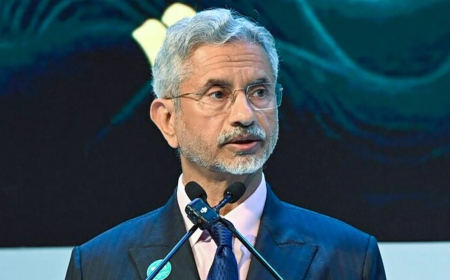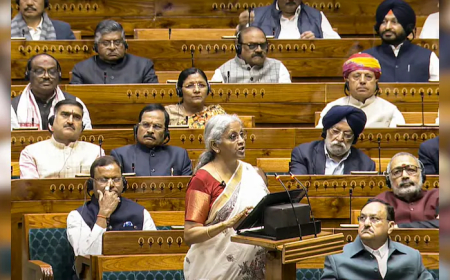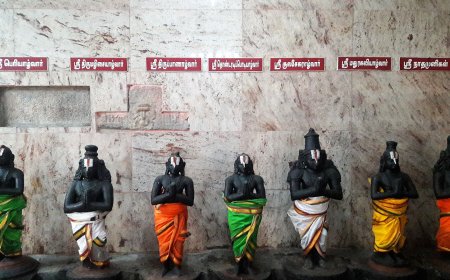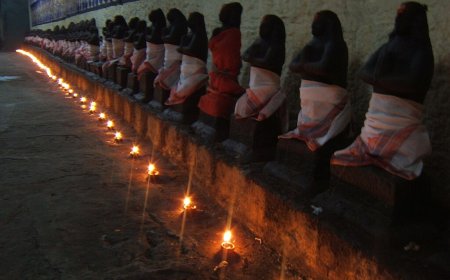ITC Hotels Share Price in Focus as Stock Exits Sensex and BSE Indices Amid Demerger Dynamics
ITC Hotels’ share price will be closely watched after its exclusion from the Sensex and other BSE indices triggers an estimated ₹1,100 crore sell-off by index trackers and passive funds.

ITC Hotels, the recently demerged entity of ITC Ltd, is set to face turbulence on Wednesday, February 5, 2025, as its shares are removed from the Sensex and other BSE indices before trading begins. The stock, which was temporarily included in these indices for portfolio rebalancing by passive funds, now faces an estimated ₹1,100 crore worth of selling pressure due to its exclusion.
On Tuesday, February 4, ITC Hotels’ share price closed 4.16% lower at ₹164.65 apiece on the BSE. Analysts anticipate further downward pressure as index trackers adjust their portfolios following the stock’s removal. Additionally, the stock’s exit from the NSE Nifty 50 is expected to trigger another ₹700 crore worth of selling, compounding the challenges for the newly listed entity.
Why Was ITC Hotels Removed?
According to a notice on the Bombay Stock Exchange (BSE), ITC Hotels failed to hit the lower circuit until the cut-off time of 2 PM on February 4. This failure led to its automatic exclusion from all BSE indices effective prior to the market opening on February 5.
The decision comes just days after ITC Hotels made its debut on Indian stock exchanges on January 29, 2025. Listed at a significant discount to its discovered price—₹188 on the BSE and ₹180 on the NSE compared to ₹260 and ₹270, respectively—the stock has struggled to gain traction. Its market valuation has already dropped from over ₹39,000 crore at listing to ₹34,266 crore as of February 4.
Operational Strength Despite Market Challenges
Despite the stock’s volatile performance, ITC Hotels has demonstrated robust operational metrics. The company reported a 51.9% increase in its Average Room Rate (ARR), rising from ₹7,900 in FY19 to ₹12,000 in FY24, reflecting a Compound Annual Growth Rate (CAGR) of 8.7%. Similarly, Revenue Per Available Room (RevPAR) climbed 57.7% during the same period, reaching ₹8,200 in FY24, with a CAGR of 9.5%.
Room sales accounted for 52% of total revenue in FY24, while food and beverage contributed 40%. Owned hotels showed particularly strong growth, with ARR and RevPAR increasing by 20% and 18%, respectively, in FY24, alongside an occupancy rate of 69%.
Ambitious Expansion Plans
As one of India’s largest hotel chains, ITC Hotels operates 140 properties with approximately 13,000 rooms as of October 2024. The company aims to expand its portfolio to over 200 hotels and 18,000 rooms by 2030. Around 35% of its current portfolio consists of owned properties, while the remaining 65% operates under management or franchise models.
With a net cash surplus and negligible debt on its books, ITC Hotels enjoys healthy financial flexibility. Analysts highlight its strong Return on Capital Employed (RoCE) of approximately 20%, underscoring its potential for sustainable growth.
The Demerger Dynamics
ITC Hotels was carved out of ITC Ltd through a demerger that took effect on January 1, 2025, with a record date of January 6. Existing shareholders received one ITC Hotels share for every ten ITC shares held. Post-demerger, ITC Ltd retained a 40% stake in the new entity, distributing the remaining 60% among shareholders.
The demerger aimed to unlock value by allowing ITC Hotels to operate independently and focus on its hospitality business. However, the stock’s rocky debut and subsequent exclusion from key indices have raised concerns about investor sentiment and the challenges of establishing a standalone identity in a competitive market.
Passive Fund Selling and Market Impact
The removal of ITC Hotels from the Sensex and Nifty 50 is expected to trigger substantial selling by passive funds and index trackers. With an estimated ₹400 crore worth of selling on the BSE and ₹700 crore on the NSE, the stock could face significant downward pressure in the near term.
Such large-scale selling often creates volatility, especially for newly listed stocks with limited trading history. Investors will closely monitor whether institutional buyers step in to stabilize the stock or if retail investors drive further declines.















































